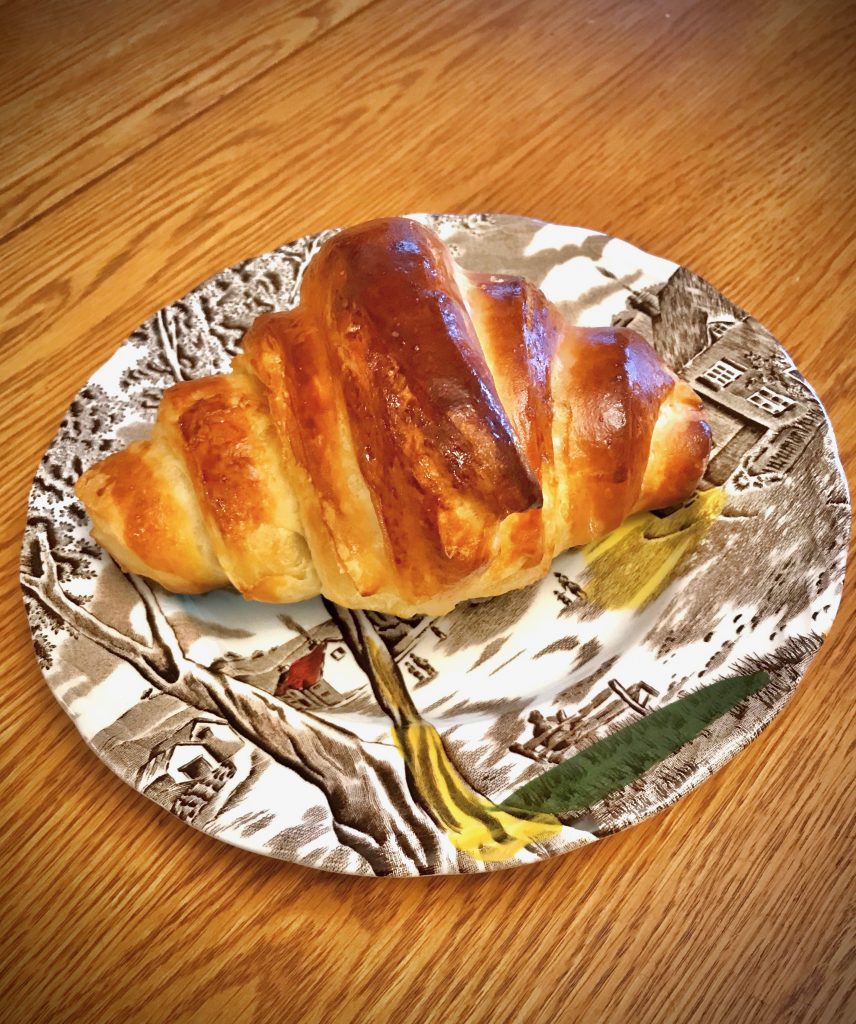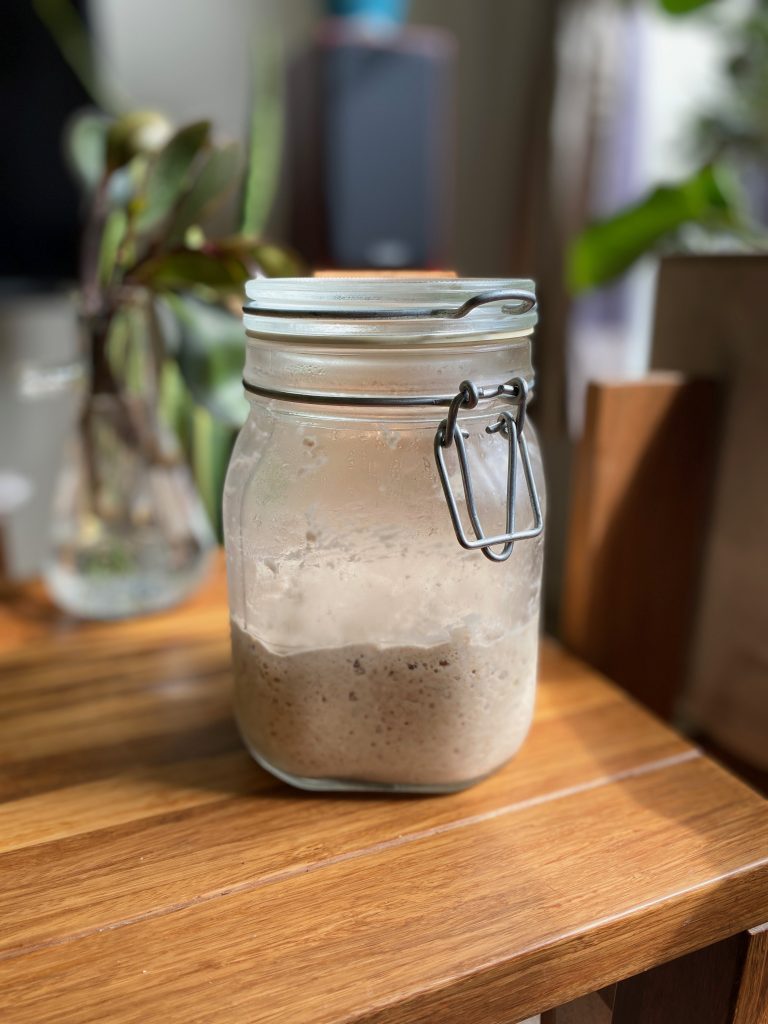As the COVID-19 pandemic unfolds around us, it seems that every aspect of daily life has been utterly disrupted. I’m not a doctor or a virologist, so besides diligently practicing social distancing, there’s very little that I can do.
I decide that now is a good time to make croissants.
I’m not the only one turning to baking – Twitter and Instagram are exploding with people “stress-baking” to deal with the COVID-19 fallout, and the grocery store is conspicuously low on flour and yeast.
This got me wondering – why do we turn to baking in times of crisis?
Perhaps most simply, baking just makes us feel better: in a 2017 study of more than 450 people, “mood repair” was the most common self-reported reason that people baked.
Ann Futterman Collier, an associate professor of clinical psychology at Northern Arizona University and lead author of the abovementioned study, says that engaging in “maker” activities, like baking, woodworking, or knitting, can be important for psychological well-being. And that this may be even more important during times of intense stress.
Participating in activities that you’re really engaged in “gives you a vacation from thinking about the bad things happening in the world,” says Collier. “[Afterwards] you have a sense of feeling renewed and restored because you had a reprieve from your problems and stress for a little while.”
Kelly Preeper, a theater artist and creator of the YouTube channel Social Distance Kitchen, feels similarly. “I’m a really strong believer in doing things that are physical and practical and require a certain amount of concentration. It’s just really good for grounding a person and making them feel a bit calmer.”
Preeper says that baking also gives her a sense of accomplishment and certainty. Like many people, she has been unable to work during the COVID-19 crisis. “Right now, so many of us are just tied to our phones…And there’s nothing wrong with wanting to be informed, but you do that all day and you feel like you’ve accomplished nothing.”
Whereas with baking, she can put in a few hours of work in the kitchen and have something concrete to show for her efforts. “Actually getting my hands dirty, it gives me a feeling that I’m doing something to sustain myself, in the most literal, practical sense…A lot of other things are precarious, but I know if I follow this recipe, I’ll at least have something good to eat right now.”
Baking can also be a great way to reconnect with positive memories from our past – a Thanksgiving feast with family, a birthday dinner party with friends, a romantic meal with a loved one.
“Food has strong emotional value in many cultures and it has a lot of positive associations, including the comfort of shared family times, of traditions, and of ceremonies,” says Collier. “Besides partaking in the meal, these reasons contribute to why people enjoy making food so much.” These positive memories involving social connectedness can help us feel better even when we may be somewhat socially isolated in the present.
If you are currently living with family, Collier emphasizes the importance of making things together as a family. “Not only would it benefit [family members] to get involved, but it also begins to create family traditions and memories…It’s really important for kids at any age to participate.”
Laurel Walter, age 12, has been doing just that. She’s been doing lots of baking with her mom and her sister since the schools in Ontario closed on March 14. “[Baking is] something that I just get to do with my family. And we get to spend time together.” She tells me that her favorite thing she’s made so far is peanut butter cookies, and that she finds baking both fun and relaxing.
In addition to being a valuable way to connect with the people you live with – whether family or roommates – baking can also foster social closeness with people that we are physically distanced from.
Both Walter and Preeper discuss baking with friends who are fellow bakers. Preeper has also posted instructional baking videos on social media and has gotten some very positive responses, which has been very meaningful for her.
“People have been sending me pictures of the things that they’ve made…That’s been kind of astonishing because I felt like I was [making the videos] mostly for myself,” Preeper says.
Ordinarily, she says, she loves to share things she’s baked with others, but since that’s not possible right now, sharing recipes and how-to videos helps give her a similar feeling of community.
For example, after posting a video about making sourdough starter – a mix of water and flour that people use to cultivate wild yeast – she says she’s gotten lots of messages from people sharing pictures of their own starters. Only a small amount of the starter is used to bake bread, but the rest can be kept more or less indefinitely – and some people have taken to naming them. A girl in Russia sent Preeper a picture of her starter named Percy, and a friend sent a message about her starter Pickles. (I’m certainly not above this trend – my sourdough starter is named Doughlene.)
Collier says that these social connections are incredibly important, especially now when it’s easy to feel isolated. “Social support is one of the most important factors, psychologically, for our well-being…If people can share in the making process by talking about what they’re making, or helping each other make things, or having a common goal to make something together, that would be really special. And it would increase the psychological benefits that people obtain from involvement in DIY activities.”
Collier says that the way to get the most out of your maker activity – whether it’s baking or sewing or metal working – is to choose something that’s really engaging, something complex enough to occupy your mind fully. If you’re making the same recipe you’ve made a hundred times before, it’s easy to go on autopilot and let your mind wander back to anxious thoughts.
So go ahead and bake that wonderful and complicated thing you’ve always wanted to make and then tell your friends about it. Whether it’s chocolate souffles or macarons or eclairs, getting your hands into some flour can be an effective – and tasty – way to cope with stress during these difficult times.




The comments section is closed.
I shared this on facebook! So great